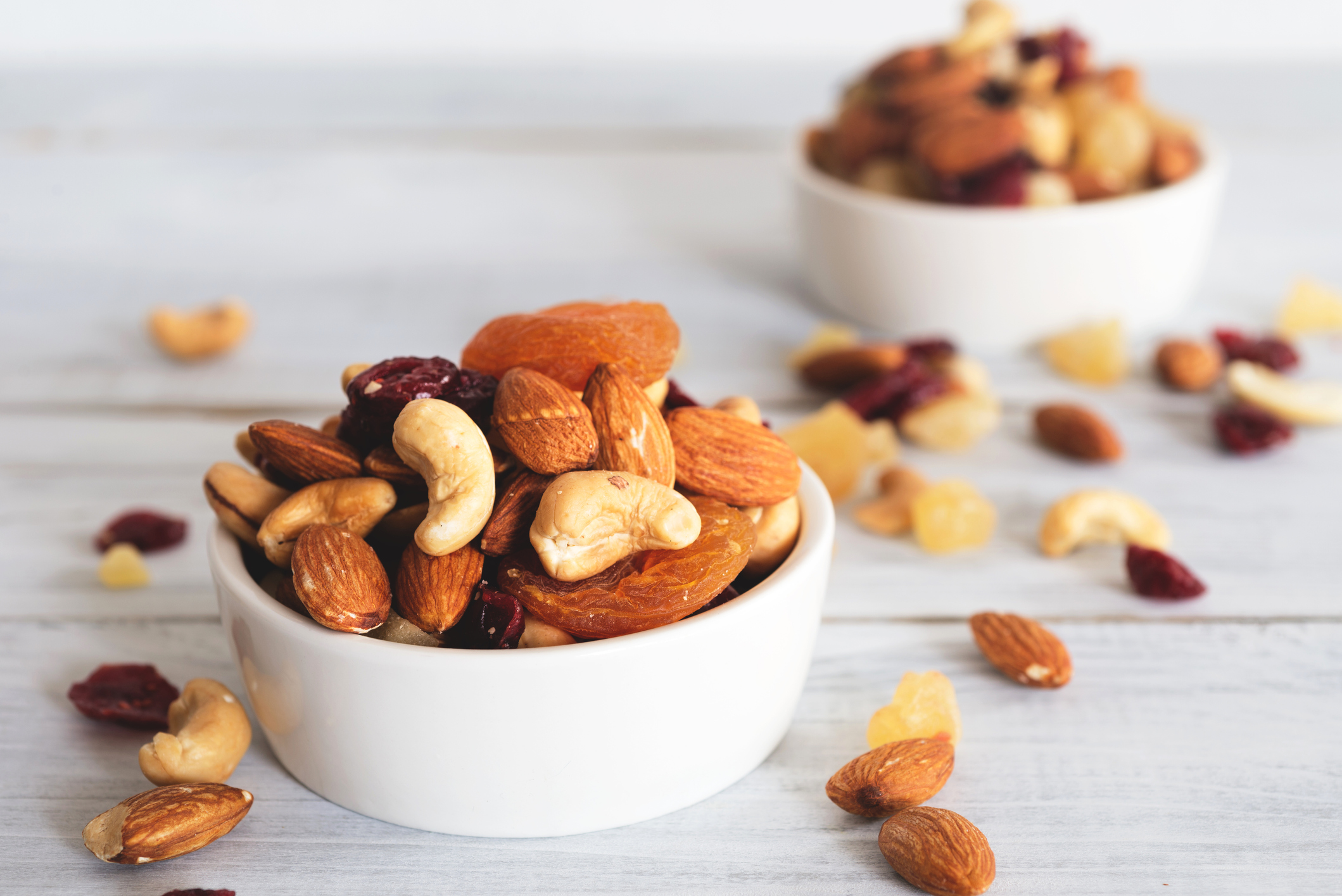5 Reasons You Stopped Losing Weight and What to Do about It
When starting your diet, you are probably motivated and excited to be starting your weight loss journey. You have found a diet that you think wil…
- Published: 1/5/2021
- Categories:
- 8 min. read

- Published: 1/5/2021
- Categories:
- 8 min. read
When starting your diet, you are probably motivated and excited to be starting your weight loss journey. You have found a diet that you think will fit you and can lead you straight to your goal. During the first few weeks, everything goes according to plan, you lose a substantial amount of weight, you are feeling good and devoid of hunger feelings. Then, after additional days/weeks of following the plan, you stop losing weight and everything starts to become harder your motivation drops and you are now suffering from hunger pangs. What happened? There can be several reasons for the initial “easy” weight loss and for your weight loss to come to an abrupt halt after some time.
1. Decreased loss of water

If you, in the beginning, have cut down on carbohydrates as well as increased exercise you probably lose some weight due to loss of a storage form of carbohydrate, glycogen. Glycogen is synthesized from carbohydrates but when you restrict carbohydrates and burn glycogen through exercise you might not ingest enough carbohydrates to refill the glycogen stores completely.
In addition, glycogen binds a lot of water (~3 g water per 1 g glycogen) (1), i.e. if you have 500g of stored glycogen you have ~1500 g water bound to glycogen.
So, while you might lose weight fast when starting your diet, some or most of the lost weight could be a loss of water and glycogen. When the diet progresses less of the glycogen stores are drained and weight loss might slow down.
It is therefore not surprising that the first phase of weight loss consists of a smaller proportion of fat mass loss (~34 %) as compared to later (~64 % of weight loss from a loss of fat mass) (2).
What to do: Be aware that the initial weight loss might come easy and to a larger extent consist of fat-free mass (e.g. glycogen and water). Just know that the weight loss will probably slow down somewhat after this initial period. However, if you are in a reasonable calorie deficit (~200-600 Cal/day) you can comfort yourself with the fact that the weight loss from now on hopefully will consist of a larger proportion of fat. It is also important to exercise, not be in a too large energy deficit and eat a sufficient amount of protein to minimize the loss of muscle mass while dieting.
Bonus fact: Muscle mass contains less energy than fat mass per kg. Therefore, when you are in a Cal deficit and utilize energy from your own tissue (muscle and/or fat), you lose weight faster if more of that energy is taken from muscle tissue (due to being less energy dense, i.e. you need more weight to compensate for any given amount of energy deficit). A slower weight loss is preferred for conserving muscle mass.
What is glycogen? Glycogen is a form of energy stored in our muscles (~400 g) and liver (~100 g). Glycogen is for example important for keeping our blood glucose levels stable during fasting (e.g. during the night) as well as an important source of energy during exercise.
2. Decreased total energy expenditure/Metabolic adaptation
It is easy to assume that if you lose weight eating a certain number of calories or amount of food, then you will keep on losing weight just as long as you stick to that plan. However, as you lose weight your energy expenditure decreases. It is estimated that you, with every lost kilogram of body weight, decrease energy expenditure by ~20-30 Cal/day (3).
In addition, a lighter body requires less energy to move around.
This means you have to either increase your energy expenditure by exercising/moving more or decrease your energy intake further.
Also, your spontaneous movement usually decreases somewhat when losing weight contributing to decreased energy expenditure.
What to do: With decreased bodyweight, your energy expenditure usually follows. Meaning you also have to adapt your Cal intake/energy expenditure in order to still lose weight.
If you aim at an energy deficit of 400 Cal/day and lose several kg of weight, your deficit probably is less than 400 Cal/day (due to decreased energy expenditure). You therefore have to decrease your Cal intake further or increase your energy expenditure through exercise if you still want to be in a 400 Cal/day Cal deficit.
3. Eating more than you think
After a few weeks of strict dieting you now start to feel the hunger sneaking up on you and therefore you might have picked up the bad habit of snacking or adding some smaller treats to your diet. This is not surprising since weight loss is accompanied by hormonal changes (hunger hormones increase and satiety hormones decrease), an increased appetite and a decreased satiety (3).
Some habits that can hinder further weight loss include snacking, not accounting for butter/oil or other calorie dense ingredients/foods that you might not always notice.
It is estimated that the appetite increases with ~100 Cal/day above normal (baseline) with each kg of body weight lost (3), it is therefore not surprising that the urge to snack emerges. Notice that the appetite is increased by ~100 Cal/day. I.e. ~5 times more than the decrease in energy expenditure per kg. Thus, increased appetite might be an even more important factor for weight regain due to increased food intake, trying to match your increased appetite, than the loss in energy expenditure.
What to do: Be aware that the urge to snack and add treats to the diet can come when hunger starts to appear. Either plan for this by keeping healthy snacks at hand or just acknowledge the fact that you sometimes will feel some hunger when losing weight (i.e. “tough it out”).
Logging your food in Lifesum is a great way of keeping track of what you eat and discover if you have any foods adding too much energy to your diet. Lifesum also functions as something to keep you accountable.
4. Stress

Stress can lead to water retention and while you might still lose fat you could retain water and thereby masking the fat loss. There are many different types of stress, e.g. psychological stress (e.g. too many things to do at work or at home, going through a break up, etc) but also physiological stress for example in the form of starvation, lack of sleep, and excessive exercise.
What to do: Try to identify any stressors in your life, and if possible, reduce them. Avoid starving yourself and excessive amounts of exercise.
Weight loss can also be a stress and therefore the weight loss might not be as straight forward as one would hope. A diet break during a week or two where you eat some more (not binging though!) could be a good strategy to implement when weight loss has plateaued and you start feeling really fatigued.
5. Sleep
Not getting enough sleep is a stress on the body (4) but it can also increase the likelihood of increased food consumption (5), lead to decreased fat loss (6,7) and increased loss of fat free mass (e.g. muscle) when dieting (7). These are just some of the detrimental effects of sleep deprivation most relevant to a weight loss plateau, but sleep deprivation also has many other detrimental effects (e.g. depression, impaired memory etc).
What to do: Prioritize sleep. Have a relaxing routine before going to bed. Look over your sleep hygiene.
Summary

There are several factors contributing to a weight loss plateau including:
- Decreased loss of water weight
- Decreased energy expenditure
- Eating more than planned
- Increased stress levels
- Sleep deprivation
There are ways to combat all of these factors (see “What to do” above) which can set you up for further weight loss.
Fredrik Wernstål is a final year medical student with a passion for nutrition, training, performance and health. His goal is to help people reach a healthier and happier life by providing research-based advice.
Find out how to lose weight with Lifesum!
References
Fernández-Elías VE, Ortega JF, Nelson RK, Mora-Rodriguez R. Relationship between muscle water and glycogen recovery after prolonged exercise in the heat in humans. Eur J Appl Physiol. 2015 Sep;115(9):1919–26.
Müller MJ, Enderle J,Bosy-Westphal A. Changes in Energy Expenditure with Weight Gain and Weight Loss in Humans. Curr Obes Rep. 2016 Dec;5(4):413–23.
Hall KD, Kahan S. Maintenance of Lost Weight and Long-Term Management of Obesity. Med Clin North Am. 2018 Jan;102(1):183–97.
Meerlo P, Havekes R, Steiger A. Chronically restricted or disrupted sleep as a causal factor in the development of depression. Curr Top Behav Neurosci. 2015;25:459–81.
St-Onge M-P. The role of sleep duration in the regulation of energy balance: effects on energy intakes and expenditure. J Clin Sleep Med JCSM Off Publ Am Acad Sleep Med. 2013 Jan 15;9(1):73–80.
Chaput J-P, Tremblay A. Sleeping habits predict the magnitude of fat loss in adults exposed to moderate caloric restriction. Obes Facts. 2012;5(4):561–6.
Nedeltcheva AV, Kilkus JM, Imperial J, Schoeller DA, Penev PD. Insufficient sleep undermines dietary efforts to reduce adiposity. Ann Intern Med. 2010 Oct 5;153(7):435–41.
All of the content and media on Lifesum is created and published for information purposes only. It is not intended to be used as a substitute for medical advice or treatment. Users should always consult with a doctor or other health care professional for medical advice. If you have or think you are at risk of developing an eating disorder, do not use the Lifesum app and seek immediate medical help.

